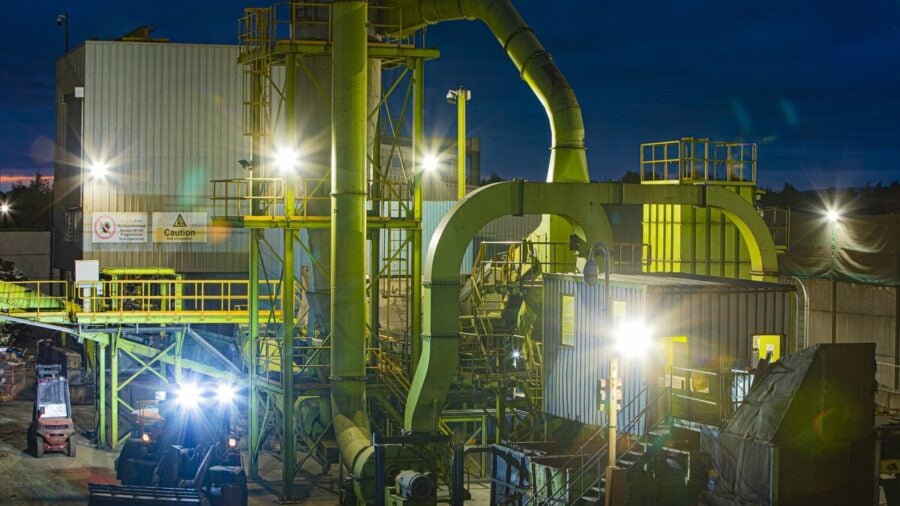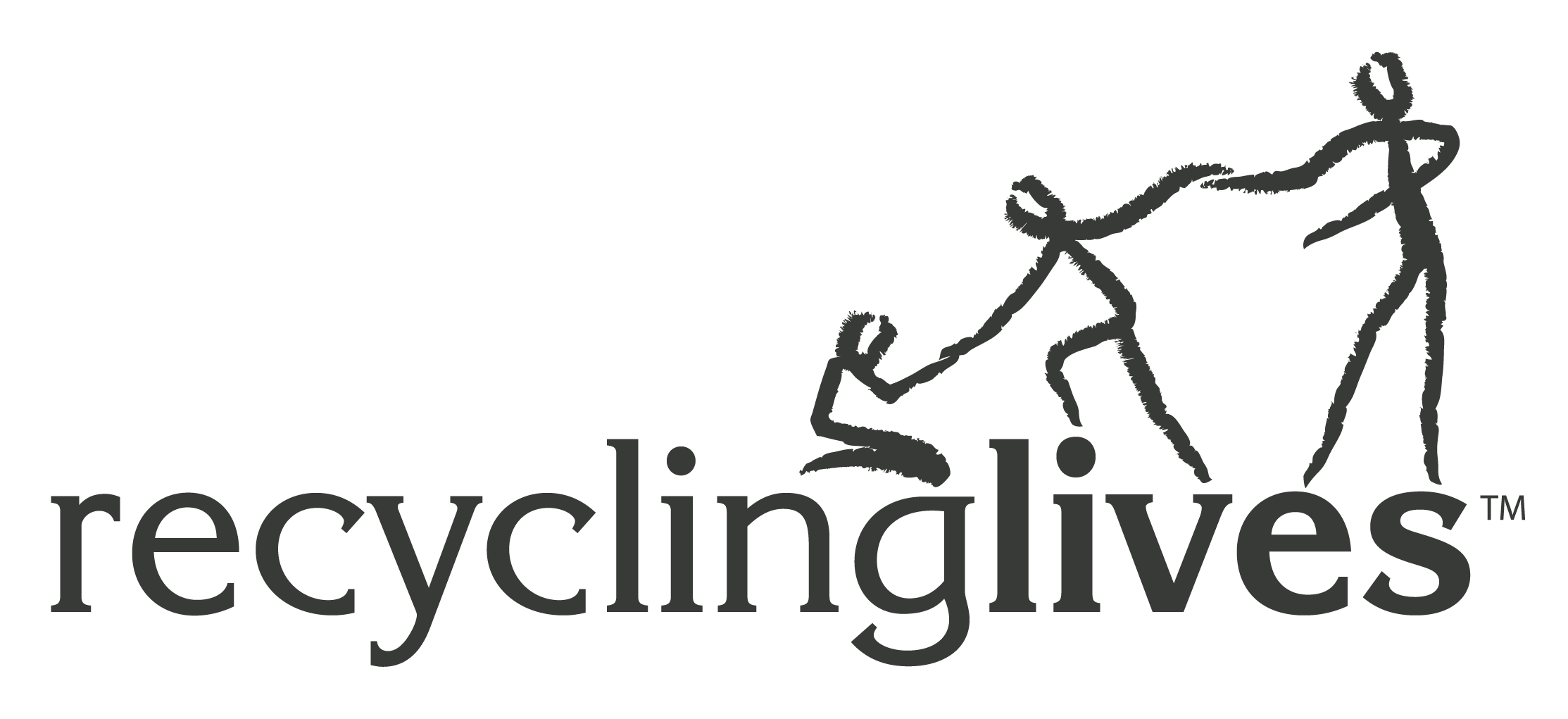
A UK recycling centre HQ’d in Preston provides a portal into a new world where environmental innovation, social sustainability and profitability work together in harmony.
On the surface, it doesn’t look like a prosperous new land. Men and women in high-vis jackets and safety helmets operate car bailers, giant cranes and forklift trucks, and warehouses of dismantled electronic devices, car engines, and packaging await the next step of their second purpose in life. But this is a land of opportunity, with many of the workforce finding their own fresh start here.
Alongside the company’s workforce, current and former offenders, as well as other people from disadvantaged backgrounds, are learning new skills to get back on track.
This is the home of Recycling Lives, a recycling and waste management company whose unique business model is harnessing environmental innovation and social sustainability as part of the drive towards profitability. The business has 23 sites across the UK and is the largest end-of-life vehicle (ELV) processor in the UK. Last year, it achieved B Corp certification in recognition of its ethical, social and governance excellence.
“ESG is at the heart of everything we do,” says CEO Gerry Marshall. “It has always been hugely important that we make a genuine, positive difference on both a social and environmental basis – it’s the reason we exist. We’ve found that neither of these things is mutually exclusive to being a profitable business. We can do good business by doing good.”
It has always been hugely important that we make a genuine, positive difference on both a social and environmental basis. Neither of these things is mutually exclusive to being a profitable business
It’s a heartwarming and hopeful story during an important moment for businesses that have been tasked with reaching net zero by 2050. RepRisk research has revealed that one in every five climate-related global ESG risk incidents are linked to greenwashing - a term coined for businesses that make unsubstantiated claims about their sustainability credentials for financial and reputational benefit.
Greenwashing and the backlash that guilty businesses have faced have caused another growing problem and created a new term for the sustainability dictionary: greenhushing. Research published by climate solutions provider South Pole last year revealed the increasing prevalence of greenhushing around corporate climate targets. Covering 1,200 large businesses with net-zero targets, the research found that 26% of companies who had applied to the Science Based Targets Initiative had not published information about the new targets on their own websites or reports.
So, how does Recycling Lives live and breathe its ESG strategy to ensure that commitments are met? To achieve B Corp status, businesses are required to meet rigorous societal and environmental standards across five key impact areas: environment, governance, workers, community and customers. It’s a demanding and scrutinous process that only around 1,100 UK businesses have passed so far.
Marshall says a strategic internal audit is key before going public with grandiose plans. “Becoming a B Corp is the gold standard for anyone going down the ESG route,” says Marshall. “Along with the process of compiling our first ESG report, the B Corp pathway made us accountable and enabled us to take a step back and look at ourselves to see what we were contributing in terms of emissions and what we were actually contributing to society. We did an internal audit, and that gave us a benchmark to measure ourselves against and a plan to reduce emissions and add social value.”
Social value at the company is intertwined with sustainability and productivity. It employs people who are released on temporary licenses from prison as well as those who have been permanently released from custody. They are paid a living wage and offered opportunities to develop their skills, confidence and self-sufficiency across its recycling sites. And it’s working.
The approach has reduced average re-offending rates among their workers to less than 5%. This far outdoes national average rates: up to two-thirds of prisoners in the UK re-offend, and around 28% find work upon release.
Both business strategy and financial investment are fundamental to a successful, integrated ESG strategy but should be approached as an investment that is designed to create value. Recycling Lives’ top-level and day-to-day business decisions are based on its socially and environmentally sustainable ethos. It has invested in the development of groundbreaking technology that aims to reduce the organisation’s waste, lower and potentially eliminate energy costs onsite and create a new income stream by selling renewable energy back to the grid.
The company recycles upwards of 180,000 cars per year, but up to recently, that process created landfill from the automotive shredder residue (ASR). While it recycles the parts it can, the remaining ASR amounts to about 25% of end-of-life vehicle mass. Currently, Recycling Lives is able to recover 20%, leaving 5% which goes to landfill due to its complex make-up. However, that 5% is now being addressed through the business’ energy-from-waste solution, which uses ASR to generate power and create green hydrogen through thermal treatment technologies to reduce waste-to-landfill.
Recycling Lives is now in the process of scaling up its energy from waste plant and aims to have its first production model operational later this year. The final stage of the model will see banks of repurposed batteries from electric vehicles (EVs) used to store renewable energy produced by the process and power the purpose-built EV de-pollution facility at the 15-acre recycling park headquarters in Preston.
“We’ve invested very heavily in innovation,” says Marshall. “We’re aiming to have our first operational plant up and running by the end of 2023, and we’ll be generating power across our other main plants during 2024 and 2025, thereafter working on providing power back to the grid over the following 12 to 18 months. We’re looking to achieve zero per cent landfill from ASR within four years.” That investment looks set to pay off.
This breakthrough was made possible thanks to its ongoing collaboration with academics at The University of Central Lancashire. Having also worked with Renault Trucks to deliver the UK’s first ever 100% electric skip transporters, it’s clear that collaborations have been key to the success of Recycling Lives’ circular strategy, and could also be the secret to businesses across the UK meeting their own ESG goals and accelerating their journey to net zero.
As pressure builds on businesses to plan, communicate and deliver on their net zero pledges, Recycling Lives is providing a trusted ESG roadmap to a more profitable and sustainable future for others to follow.
For more information visit recyclinglives.com

A UK recycling centre HQ’d in Preston provides a portal into a new world where environmental innovation, social sustainability and profitability work together in harmony.
On the surface, it doesn’t look like a prosperous new land. Men and women in high-vis jackets and safety helmets operate car bailers, giant cranes and forklift trucks, and warehouses of dismantled electronic devices, car engines, and packaging await the next step of their second purpose in life. But this is a land of opportunity, with many of the workforce finding their own fresh start here.
Alongside the company’s workforce, current and former offenders, as well as other people from disadvantaged backgrounds, are learning new skills to get back on track.

